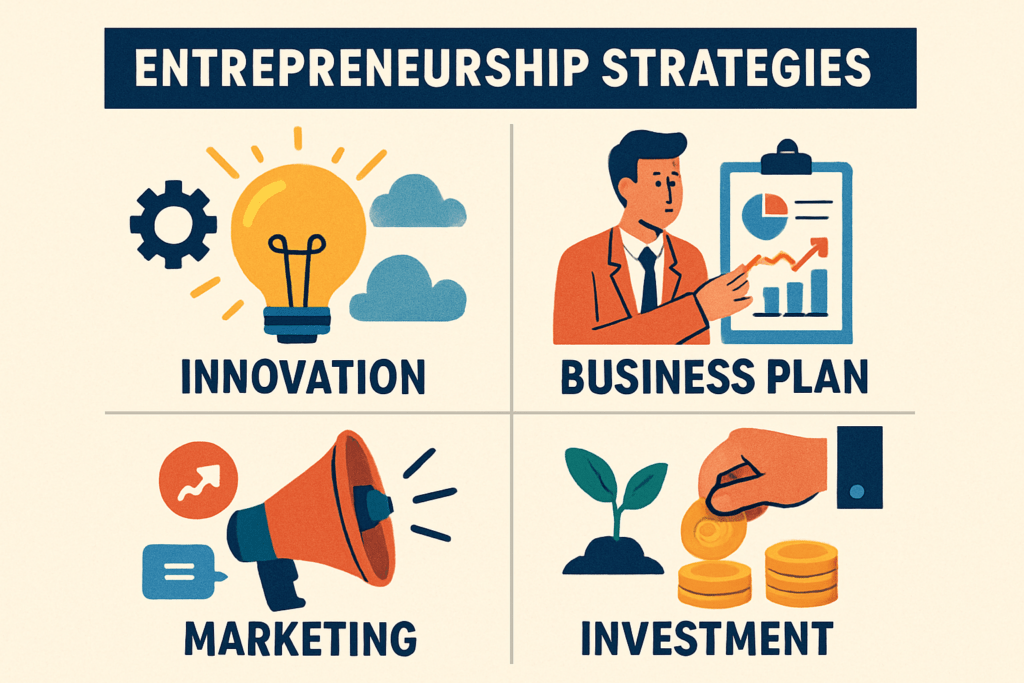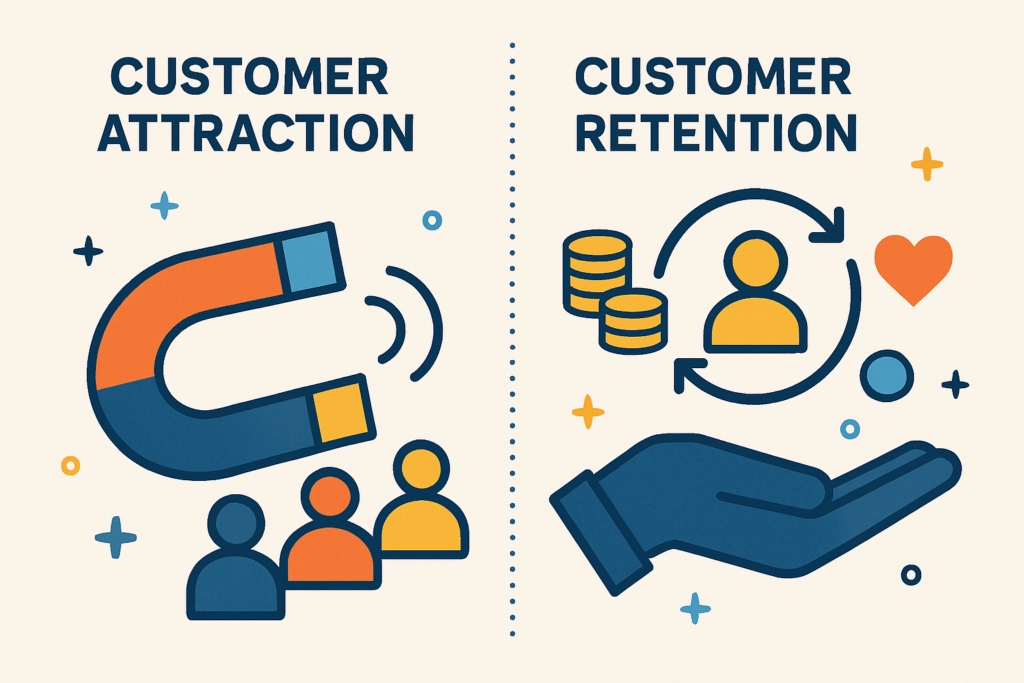Why a Resilient Business Model Matters More Than Ever
- In business, change is the only guarantee. Disruptions hit markets fast—think supply shocks, new tech, or sudden drops in demand.
- A resilient business model isn’t a luxury, it’s a necessity for survival and growth.
- Quickly introduce key benefits: sustainable growth, risk mitigation, and adaptability.
Why a Resilient Business Model Matters More Than Ever
There’s no sugarcoating it: chaos is standard operating procedure in business. One day it’s smooth sailing. The next, you’re blindsided by a supply chain snarl, a tech shift, or customer habits flipping on a dime. You can’t control these curveballs, but you can build a model that doesn’t shatter every time something unexpected happens.
That’s where a resilient business model comes in. This isn’t just a nice-to-have or some theory for MBAs—it’s your right hook and shield in a market that never stays still. The point of resilience isn’t merely to survive (though that’s essential); it’s to keep moving forward when others stall out. You get sustainable growth, even when things are dicey. You manage risk instead of praying it won’t show up. And you adapt—fast—so change becomes fuel, not a threat.
Bottom line? In today’s market, resilience is not a backup plan. It’s the basic requirement if you want your business to last.
Core Pillars of a Robust Business Foundation
Let’s cut the buzzwords—robust business foundations are really just about the basics done right, no fancy jargon required. You need a clear mission so everyone’s rowing in the same direction even when the waters get rough. Without stable finances—think solid cash flow management and a respectable cash reserve—you’re building a castle on sand. Then come diverse revenue streams. If you rely on just one big customer or product, you’re gambling with your survival. Spread your bets; it’s common sense, but a lot of founders don’t do it until it’s too late.
These pillars aren’t optional if you want to make it through economic storms or fast-moving markets. A sharp mission keeps you on course during chaos; steady finances let you ride out dry spells without panicking; multiple revenue streams mean you don’t go under if one door slams shut. If you want your company to actually last, you need robust business foundations—the practical, unglamorous kind that don’t make headlines, but do make payroll.
Adaptable Business Strategies: Stay Agile, Outlast the Rest
Markets never wait, and neither do disruptions. The businesses that thrive aren’t necessarily the biggest or richest—they’re the ones wired for change. Adaptable business strategies mean you can pivot, tweak, or overhaul the way you work without losing momentum. When lockdowns shut down dining rooms, savvy restaurants cranked up food delivery overnight. Traditional retailers rolled out curbside pickup and built online shops in weeks, not years. Even software companies flipped from one-time sales to subscription models (SaaS) to meet customers where they were.
Adaptability isn’t a single play. Sometimes, it’s as simple as shifting your supply chain or testing a new sales channel. Other times, it means tearing down old processes to build smarter, leaner ones. The goal? Don’t let change surprise you—make it your competitive edge. For more practical pivots and innovation tips, check out these customer retention strategies. When you keep your strategies nimble, you’re not just reacting to market shocks—you’re outlasting the competition.
What Happens After Winning Millions?
Winning a life-changing lottery jackpot is every player’s dream, but few are prepared for what comes next. The sudden influx of wealth can bring excitement, but also a wave of challenges. Many winners find themselves overwhelmed by financial decisions, from managing taxes to making smart investments. Some handle it well, while others struggle with reckless spending that drains their fortune faster than expected.
The Financial Reality of Winning
Many winners face critical financial decisions almost immediately:
-
Taxes and Legal Issues
- Large portions of the winnings often go towards taxes.
- Failure to plan appropriately can lead to unexpected legal troubles.
-
Investing vs. Spending
- Winners may hire financial advisors for ensuring long-term security.
- Some spend impulsively, lacking a financial plan.
-
Budgeting for the Future
- Without proper money management, even the largest jackpots can disappear quickly.
A Lifestyle Overhaul
A sudden fortune changes life in more ways than one:
-
Luxury Purchases
- Mansions, luxury cars, and extravagant vacations become instantly affordable.
-
Social Pressure
- Long-lost friends and distant relatives often reappear, expecting a share of the winnings.
-
Privacy Challenges
- Winners may struggle with unwanted media attention and public scrutiny.
Some winners embrace their new wealth openly, while others choose to live discreetly to avoid pressure and expectations.
Giving Back and Creating a Legacy
For some, wealth is not just about personal luxury—it’s an opportunity to make a difference. Many winners choose to:
-
Donate to Charities and Community Projects
- Supporting causes they are passionate about to ensure a broader positive impact.
-
Fund Education Initiatives
- Establishing scholarships and supporting educational programs.
-
Invest in Business Ventures
- Creating job opportunities and expanding local economies.
Many lottery winners go from players to philanthropists, proving that wealth can be used to create lasting change. However, not all stories end positively—many who fail to manage their winnings properly find themselves bankrupt within years.
Learning from the Frontlines: What Real Resilient Businesses Do
When the pressure’s on, the true survivors separate themselves with a few key habits. Take Shopify in 2020. As retail shut down, they didn’t just hunker down—they sprinted. By quickly rolling out curbside pickup apps and beefing up their online payment tools, they caught the wave instead of getting buried by it. Speed and clarity beat panic, every time.
Smaller outfits have their war stories too. Local gyms, for example, pivoted to virtual group classes within days—sometimes filming routines with a smartphone and charging memberships online. Their “get scrappy, try fast, fix faster” approach kept the lights on when physical doors stayed shut.
What’s the secret sauce? First, these businesses made quick decisions with imperfect info. Second, they stayed close to their customers, listening hard and tweaking offerings accordingly—sometimes daily. And behind the scenes, they already had habits in place: regular scenario drills, clear crisis roles, and a culture that rewards adaptability instead of punishing mistakes.
Resilient companies don’t just bounce back by luck. They build reflexes and routines, so when chaos hits, action feels automatic. That’s what sets them apart—and why they’re still standing today.
What Happens After Winning Millions?
Winning a life-changing lottery jackpot is every player’s dream, but few are prepared for what comes next. The sudden influx of wealth can bring excitement, but also a wave of challenges.
Financial Challenges
Many winners are immediately faced with critical financial decisions:
-
Taxes and Legal Issues
- Significant portions of the winnings may be owed in taxes, requiring careful planning to avoid legal troubles.
-
Investment Decisions
- Some winners hire financial advisors to ensure long-term security.
- Others struggle with impulsive spending and a lack of investment planning.
-
Budgeting and Planning for the Future
- Without proper money management, even the largest jackpots can quickly be depleted.
Lifestyle Changes
Winning brings about immediate lifestyle transformations:
-
Luxury Purchases
- Mansions, sports cars, and extravagant vacations quickly become attainable.
-
Social Dynamics
- Long-lost friends and distant relatives often reemerge, sometimes expecting a share of the winnings.
-
Privacy and Media Attention
- Public attention and scrutiny can become overwhelming, leading some to live discreetly.
Social Impact and Philanthropy
Some choose to leverage their newfound wealth for societal benefit:
-
Charitable Contributions
- Donations to charities and involvement in community projects are common.
-
Educational Initiatives
- Many winners fund scholarships or educational programs to foster future opportunities.
-
Business and Community Investments
- Investments in businesses can lead to job creation and community revitalization.
Legacy Building
Whether embracing luxury or opting for a low-profile life, the way winners handle their newfound riches determines not just their future, but the legacy they leave behind. Some rise as philanthropists using wealth for lasting impact, while others face financial downfall due to mismanagement.
ucleotide



